Is 7 Too Late for a Wedding? Considering Evening Ceremonies
When planning your special day, timing is key, and deciding on when to hold your ceremony is one of the biggest decisions you’ll face. A 7 PM wedding can conjure up images of a sophisticated evening with twinkling lights and a starry backdrop. It’s the time when the day cools down, and guests might be more inclined to enjoy a night of celebration. However, it’s essential to consider whether this aligns with the dining expectations of your guests and the type of atmosphere you wish to create.
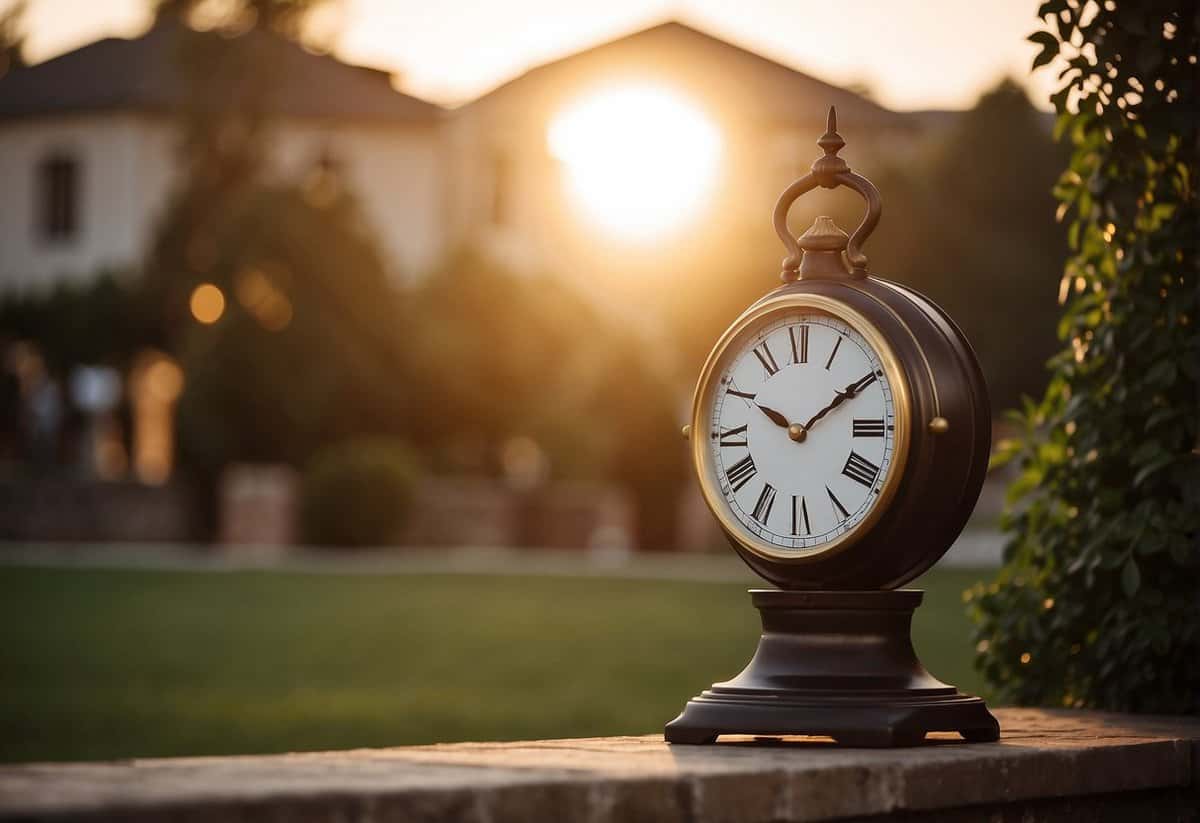
Choosing a later time like 7 PM might seem unconventional, but it can offer flexibility and uniqueness for your wedding. It permits extra preparation time for both the couple and the attendees, and potentially a more relaxed lead-up to the ceremony. Still, coordinating a later event requires careful attention to the evening’s flow to ensure that the experience remains comfortable and enjoyable for everyone involved. You may need to consider how late activities will run and whether this will affect the overall enjoyment of the night.
Key Takeaways
- Evening weddings can provide a unique and sophisticated atmosphere.
- A 7 PM start time necessitates careful planning around dining and scheduling.
- Ensure guest comfort by considering the flow and duration of the evening’s activities.
Determining Your Wedding Timeline
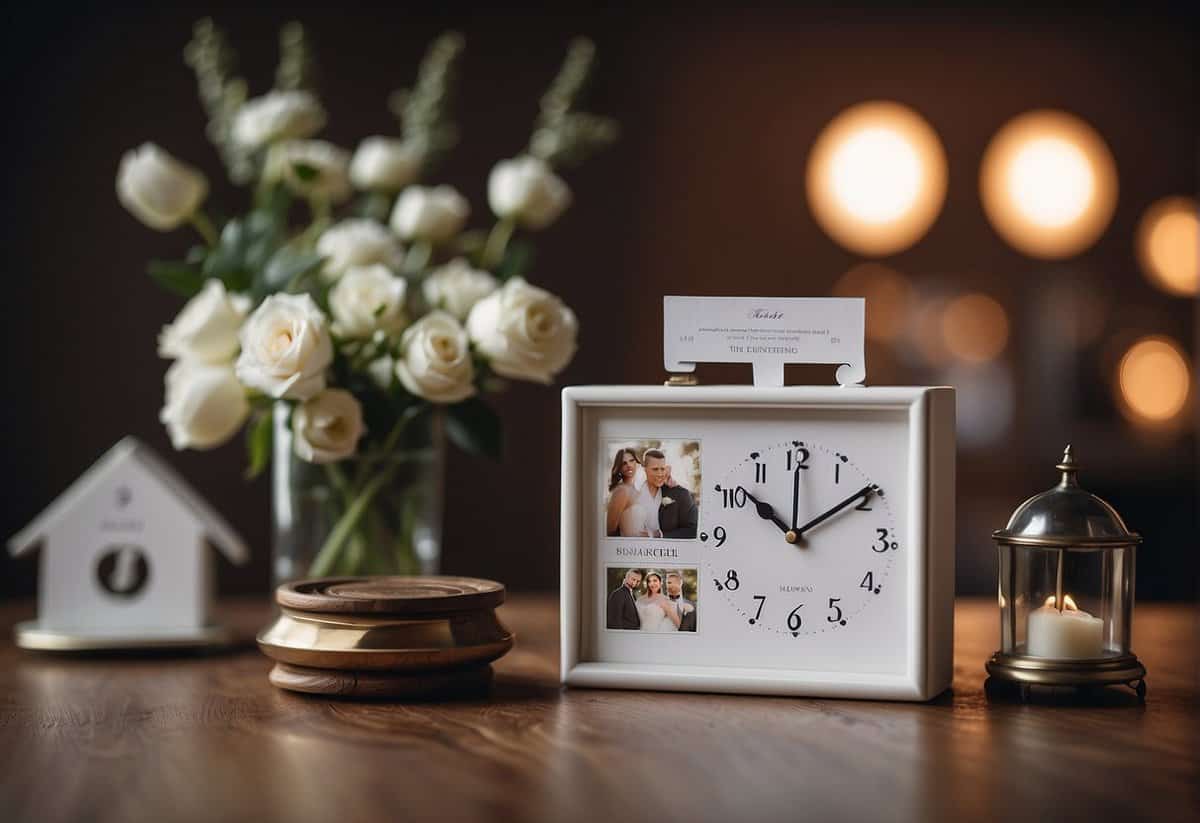
When planning your special day, the timing of events is crucial to ensure a smooth and joyous occasion. You’ll need to factor in various components, like the ceremony and reception schedule, and the timing for your photos, including whether you want a first look.
Start Time Considerations
Choosing your wedding ceremony start time is a balancing act. You’ll want to consider the time of year and the sunset hours to capture the perfect lighting, especially if you’re planning an evening event. For example, a summer wedding might have a later start time due to longer daylight hours. It’s essential to weigh the preferences and comfort of your guests, too. A start time of 7 PM may be perfect for an evening soiree, but allow ample time for dinner and celebrations afterwards.
Ceremony and Reception Scheduling
Your timeline should detail a clear transition between the ceremony and reception. Traditionally, ceremonies last around 30 minutes to an hour, with receptions spanning several hours. If you’re considering a gap between these events, plan wisely. According to A Practical Wedding, some couples opt for a two-hour interlude to accommodate setup or travel time to a different location. This can especially be beneficial if your ceremony and reception are at separate venues.
Photography and First Look
Before the ceremony, you might want to schedule a first look and take some photos. This intimate moment can be planned an hour or two prior to the ceremony, providing a private space to see each other before the formalities begin. Remember, your photography schedule will impact your overall timeline. If you’re aiming for natural light photography, you’ll need to align your photo sessions with the best outdoor lighting, typically the golden hour before sunset.
Guest Considerations
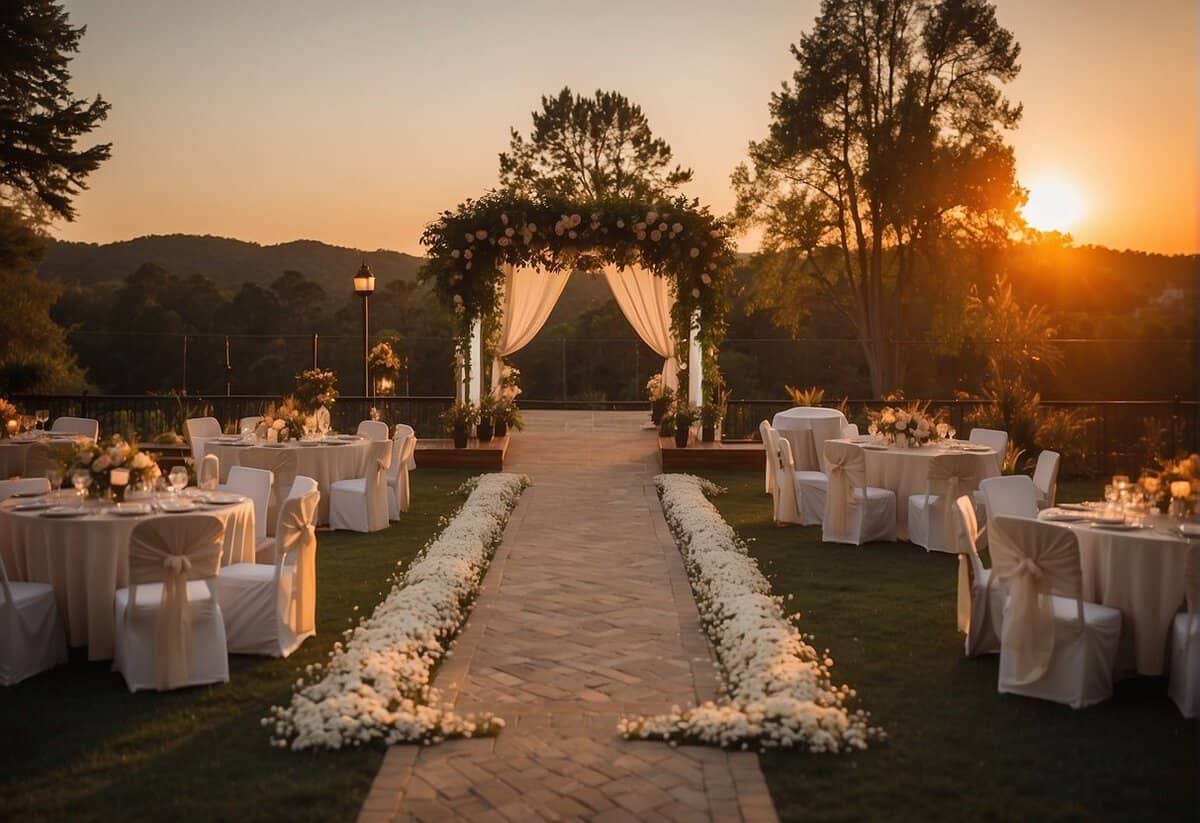
When attending a wedding, your punctuality and adherence to the invitation instructions are critical. These not only demonstrate respect for the couple but also ensure the ceremony can proceed smoothly.
Invitation and RSVP Etiquette
Your journey as a wedding guest begins with the wedding invitation. Consider this your first task in wedding guest etiquette. Make sure to read the invitation thoroughly to understand the exact time you’re expected to arrive. The RSVP is equally important, as the couple needs an accurate headcount for their planning. It’s courteous to RSVP by the deadline given, and doing so online can often be more convenient for both you and the hosts.
Accommodating Late Arrivals
In the event that you’re arriving late, it’s essential to handle the situation discreetly. If you arrive after the ceremony has begun, wait outside until an appropriate break in the proceedings or follow the guidance of the wedding coordinators. Some weddings may have specific instructions for late arrivals, which are meant to minimize disruptions, so be sure to abide by these protocols if provided.
Venue and Vendor Management
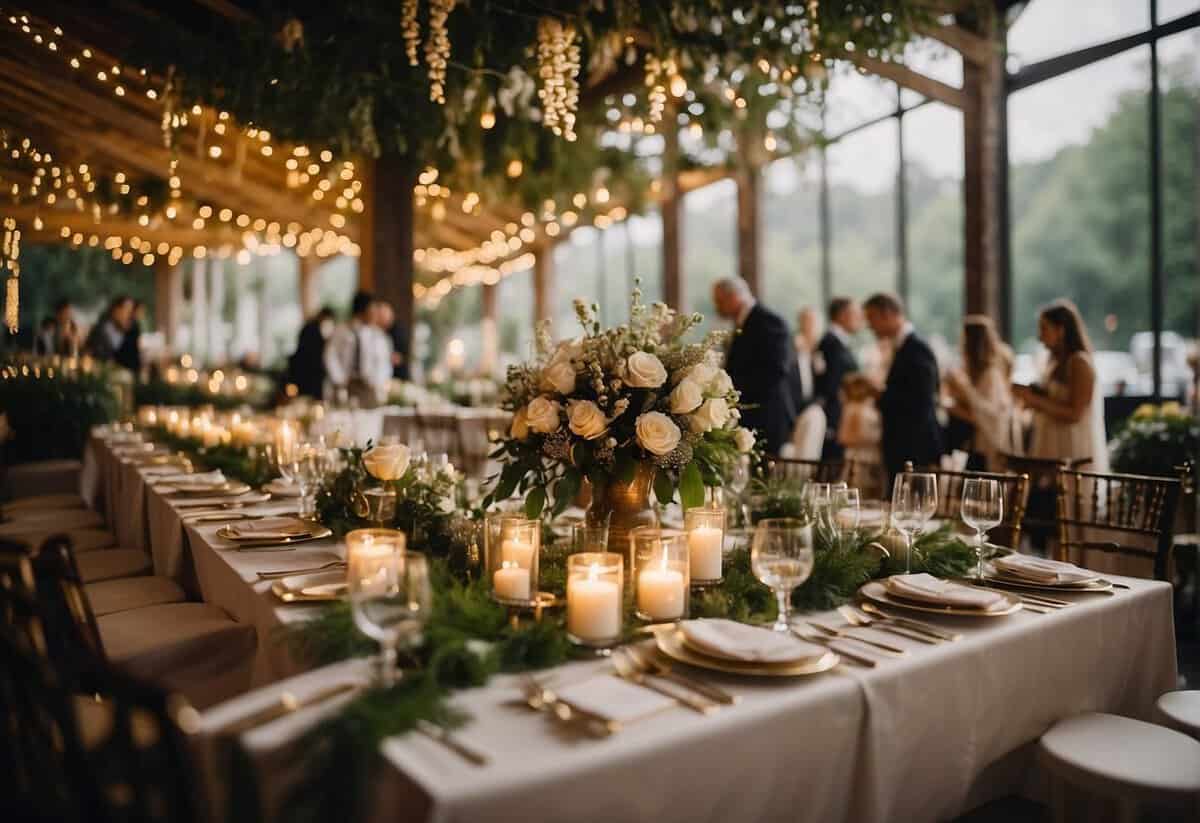
Managing your venue and vendors is crucial for your wedding day to ensure everything runs smoothly. Whether you’re working with a wedding planner or handling it yourself, staying on top of these details is key.
Securing Your Venue
When you’re looking for the perfect venue, remember to start early, especially if you’re considering a wedding date in the high season. For many popular venues, booking at least a year in advance is common. Consult with your wedding planner to identify venues that align with your vision and budget. Once you’ve made your choice, it’s important to read through the contract carefully, noting deposit requirements, cancellation policies, and what amenities are included.
Communicating with Vendors
Maintaining clear and consistent communication with your vendors is critical. Create a checklist of all vendor types you’ll need, including caterers, photographers, florists, and musicians. Your wedding planners can be instrumental in helping you understand the timeline for booking these services. Remember that some may need to be secured shortly after the venue, as they can book up just as quickly. Ensure that all agreements are solidified with a signed contract to prevent any misunderstandings. Keep track of deposit dates and final payment deadlines to avoid any financial hiccups.
Entertainment and Festivities
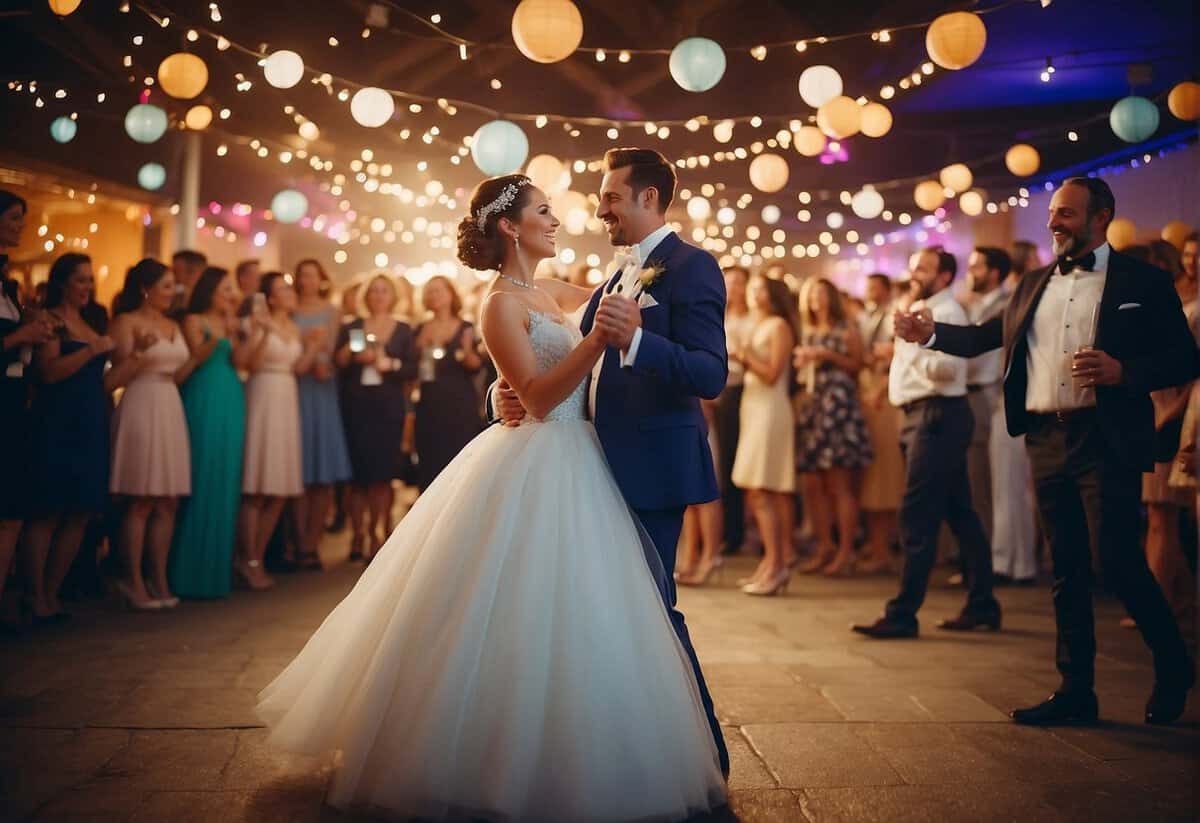
When planning a wedding with a start time around 7 PM, you want entertainment that keeps the energy high and the smiles wide. From the clink of glasses during the cocktail hour to the last dance of the evening, here’s how to ensure your festivities are memorable and enjoyable.
Cocktail Hour Dynamics
Your cocktail hour sets the tone for the rest of the evening. It’s the perfect time for your guests to mingle and enjoy a selection of cocktails and hors d’oeuvres. Consider offering both classic and signature drinks to delight your guests’ palates. If you’re wondering about the flow, a mixologist can keep things lively, and a jazz trio can add a touch of class.
Dinner and Wedding Toasts
Once everyone settles in for dinner, whether it’s a seated affair or a buffet, they’ll expect a night filled with heartfelt speeches and clinking glasses. Plan your toasts to transition smoothly from the meal to the next phase of celebration. Keep toasts brief and have your MC gently guide guests through this portion.
Dance Floor and Late-Night Activities
The dance floor is where the magic happens. Your DJ or band can tailor the music to your crowd, ensuring everyone from your little cousin to your grandmother finds a beat that beckons them to dance. And for those night owls, late-night snack bars or a s’mores station can refuel them for more dancing action.
Frequently Asked Questions
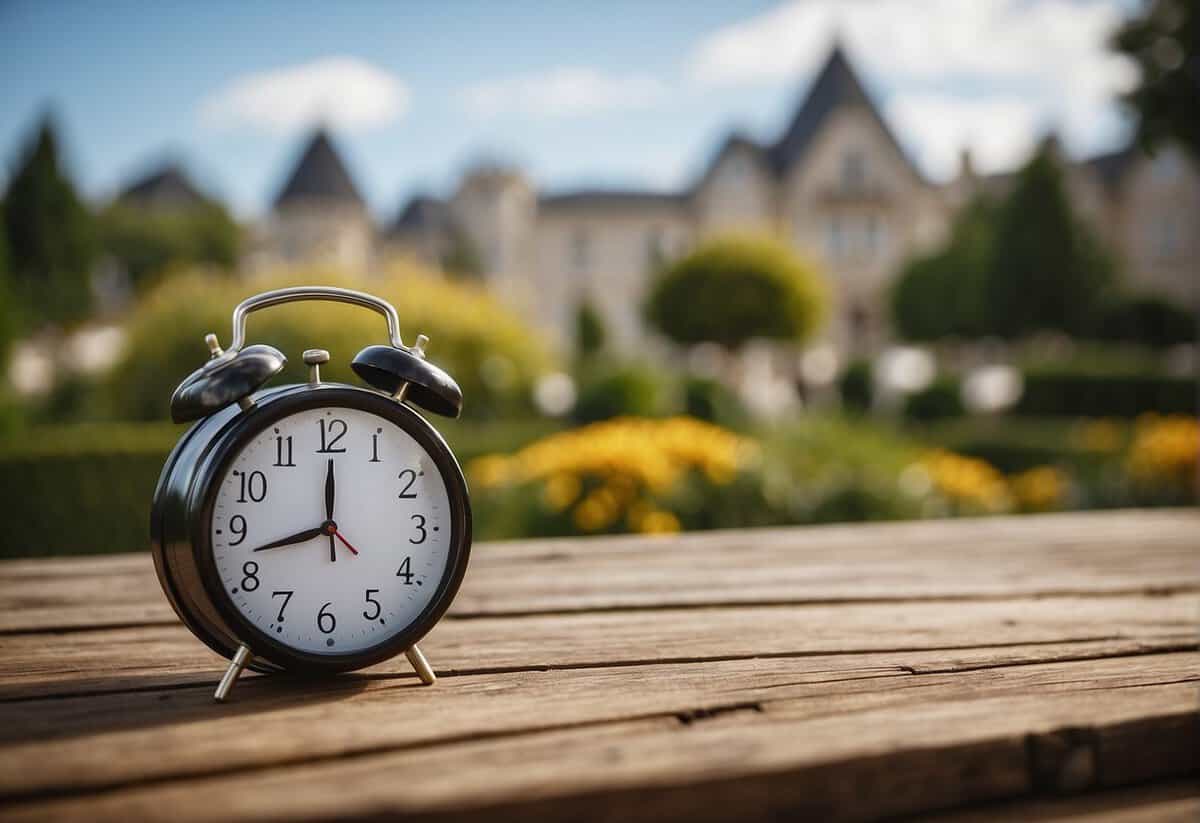
In this section, you’ll find targeted answers to your queries about holding a wedding ceremony at 7 PM or later.
What is the latest acceptable time to start a wedding ceremony?
The latest acceptable time to start a wedding largely depends on the type of ceremony and the expected duration. For formal weddings, keeping the start time no later than 8 PM is considered considerate of guests’ time. Evening wedding timelines can give you a clearer idea of how late is too late.
How can I ensure guests are comfortable with an evening wedding schedule?
To keep your guests comfortable with an evening wedding, communicate clearly in your invitation about the expected timeline. Provide amenities such as lighting for safety and perhaps a coffee or snack bar for a late-night energy boost.
What dining options work best for a wedding starting at 7 PM?
For a wedding starting at 7 PM, a formal dinner is typically expected. Consider serving a thoughtfully curated meal that fits the time of day, ensuring dishes are substantial enough for dinner yet mindful that service may run into the evening.
What are the advantages of having a later wedding ceremony?
A later wedding ceremony can create a more intimate and romantic atmosphere. Benefits include cooler temperatures in warmer climates, enhanced mood lighting options, and often a more relaxed timeline.
How do evening wedding timelines differ from earlier ceremonies?
Evening wedding timelines might compress traditional elements to accommodate the later start, focusing on core activities like the ceremony, dinner, and dancing. This means certain customs or events may be modified for brevity and guest convenience.
What should I consider when planning activities for a post-7 PM wedding?
When planning post-7 PM wedding activities, consider the energy levels and comfort of your guests. Evening specific entertainment, like a live band or fireworks, can dazzle, while ensuring events like toasts are timed so attention spans remain engaged.

